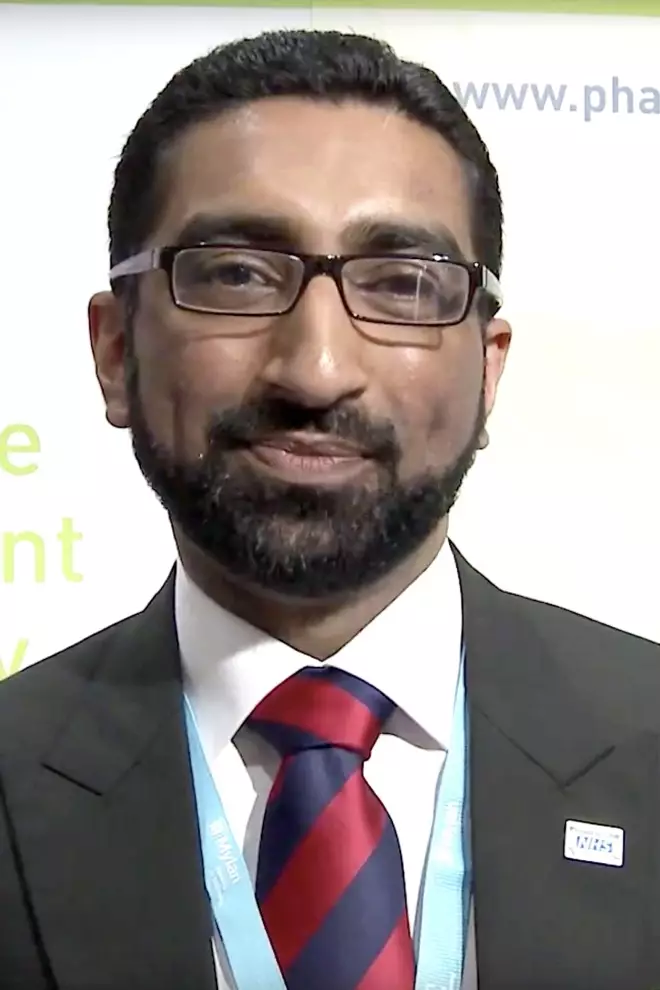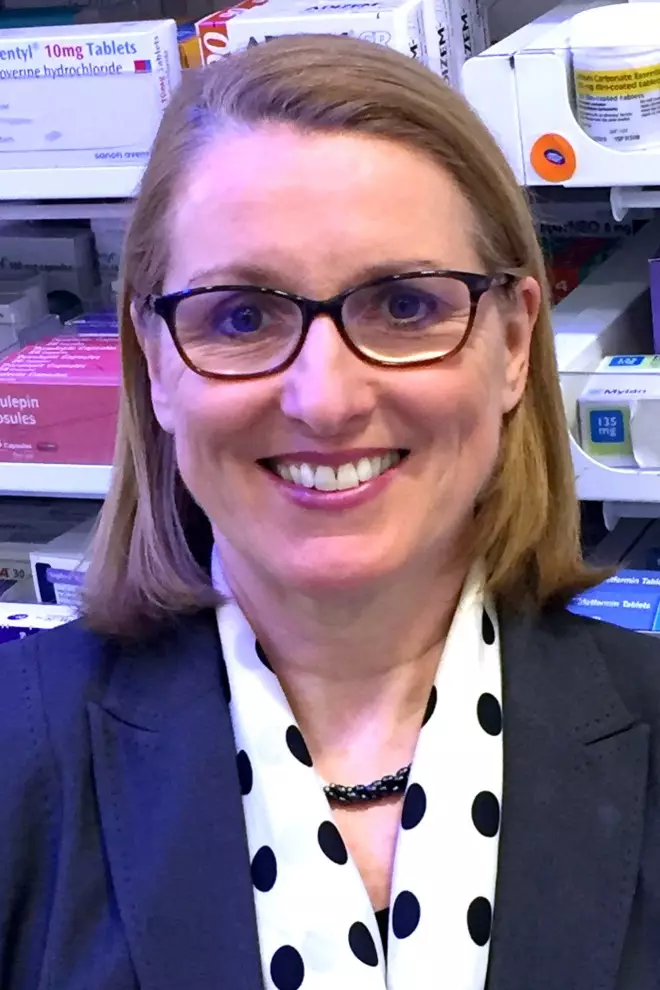
Shutterstock.com / PJ
Yes

Source: Courtesy of Mohammed Hussain
I propose that all members of the three Royal Pharmaceutical Society (RPS) national pharmacy boards are restricted to serving two consecutive terms, perhaps with a three-year break clause before an individual can serve again.
Currently, members of the English, Scottish and Welsh national pharmacy boards can serve multiple three-year terms, if voted in by the RPS membership in council elections. This has led to some members of the RPS English Pharmacy Board (EPB) serving since 2010, when the Society was established in its current form. This cannot be right; even the president of the United States has a limit placed on the number of terms they can serve.
The Royal College of Nursing, Royal College of General Practitioners and Royal College of Midwives all have two-term limits for their boards
Looking at other professional bodies and royal colleges (a status that the RPS aspires towards), the RPS is exceptional in not having term limits. The Royal College of Nursing, Royal College of General Practitioners and Royal College of Midwives all have two-term limits for their boards. It has not made these organisations less effective or lack talent; on the contrary, the argument could be made that they are more effective.
Term limits on boards are all about good governance. They prevent the expectation — self-seeded or thrust upon them — that board members need to continue their service indefinitely. This is clearer for the membership and better for the individual.
It prevents burnout and allows for a graceful and predictable departure at the end of their term. You must ask yourself why does any board member wish to keep serving term after term for a decade or more? Has it become more about them and their self-identity than their profession? Why will they not create space for the next generation of leaders to step up and refresh?
Term limits stop the longest-serving board members from establishing too much power over other members and the executive. Political machinations and voting blocks can become established on boards, and the currency on such a board can become one of favours and expediency: “Vote for me as chair; I’ll vote for you as president”. The senior positions become a commodity to be traded.
As members may be aware from the recent judicial review, a multi-term serving board member was removed from the RPS through, what I believe to be, an unedifying disciplinary and legal process. And, in 2016, it was well known that a private ballot of the RPS EPB effectively removed Ash Soni as president of the RPS by preventing his election to the Assembly. These are not the actions of an effectively functioning board.
The current voting system is unfair to any new candidate. The incumbent with many years’ service has established media opportunities that increase their name recognition and the longer a member serves, the greater the incumbent advantage. Incumbent members are able to use their position to provide published media quotes or interviews, whereas an individual with a lower profile would not have the same opportunity.
Term limits would balance out this unfairness, with a ‘designed-in’ process for a board refresh. What worked 15 years ago may no longer be needed today and this is a mechanism to allow new people to enter the board in a planned way. Knowing that a two-term limit is reached, other talented individuals wishing to join the board will know they have a chance to shine too. It will encourage greater numbers to stand as board members and vote.
It should be usual that, after two terms on a national pharmacy board, former board members go and take their experience and skills to other boards, advocating and showcasing the talents of pharmacy further afield. This would surely be a good development for the health and vitality of the RPS, and the whole pharmacy profession.
Mohammed Hussain is a fellow of the RPS and has a portfolio career spanning the NHS, regulation and private practice.
Conflicts of interest declared: Mohammed
Hussain has served two terms on the General Pharmaceutical Council, which has a two-term limit. Hussain currently serves on the board of Bradford Teaching Hospitals Foundation Trust, which also has a two-term limit.
No

Source: Courtesy of Sibby Buckle
I do not agree with this proposal. It is undemocratic, risks loss of corporate memory and curtails the input of those wanting to serve the profession. It would be astonishingly arrogant of us to decide for our members who they may or may not vote for.
It takes a good year to understand how the organisation works — even with my experience at a senior level in a large corporation and active involvement in national politics.
In my first year on the board, I listened intently, engaged in the many discussions, read the copious board papers, digested the information and tried to get under the skin of my ‘royal college’.
It took my first three-year term of office for me to feel confident about standing up and representing our profession
In my second year on the board, I stood for election to the RPS Assembly, the governing body of the RPS, where 11 elected representatives from the three boards — 7 from England, and 2 each from Wales and Scotland — sit alongside 3 nominated members — lay, scientist and academic.
This is the body with fiscal and legal responsibility for the organisation, and is responsible for the future viability and long-term direction of travel for the RPS. This is not a role that can be easily filled by a newly elected board member.
It took that first three-year term of office for me to feel confident about standing up and representing our profession. It was in my second term of office when I was able to really deliver. During this time I’ve been vice chair of the RPS EPB, chaired the RPS-hosted Pharmacy Digital Forum and currently sit on the RPS finance and investment committee.
I look around at my fellow assembly members and they are all seasoned board members like myself. They bring their experience and expertise to the table, contributing far more than their nominal daily allowance. All of the members on the Assembly have been on the board for at least seven years. None of us would be there if this proposal were to be embraced.
Two of our assembly members served on the council of the old Royal Pharmaceutical Society of Great Britain, and it has been helpful to have this experience — as philosopher Georg Hegel said, “history teaches us that man learns nothing from history”. We don’t always learn from our mistakes.
Sadly, we are not inundated with members wanting to stand for election. The election process can be incredibly stressful. In the days of 24/7 social media, responses are expected on Facebook, Twitter and Instagram. Board members are expected to be up to date with not only the pharmacy politics of the day, but also national and international health issues.
Being on the board is time consuming, requires total commitment and, alongside a full-time job, it can be a challenge too far. However, representing pharmacy in the media, along with politicians and senior decision makers, is the most satisfying and rewarding experience for those of us who are passionate about our profession and want to go the extra mile.
I am open to discussion about three three-year terms of office as a compromise — but why? Why do we feel the need to restrict enthusiastic and committed pharmacists from standing for election to the RPS? We don’t restrict our MPs or local councillors. And surely we should, ultimately, let democracy prevail?
If our members don’t want us, they won’t vote for us. Let our members decide; let our members choose who they want to represent them. We still are — I hope — a membership organisation.
Sibby Buckle is a community pharmacist and a member of the RPS English Pharmacy Board and RPS Assembly
Conflicts of interest declared: Sibby Buckle is a member of the Royal Pharmaceutical Society (RPS) English Pharmacy Board and Assembly. She is also chair of the RPS-hosted Pharmacy Digital Forum, executive board member for the Boots Pharmacists’ Association and Integrated Care System (ICS) Partnership forum member for the Nottingham and Nottinghamshire ICS.


